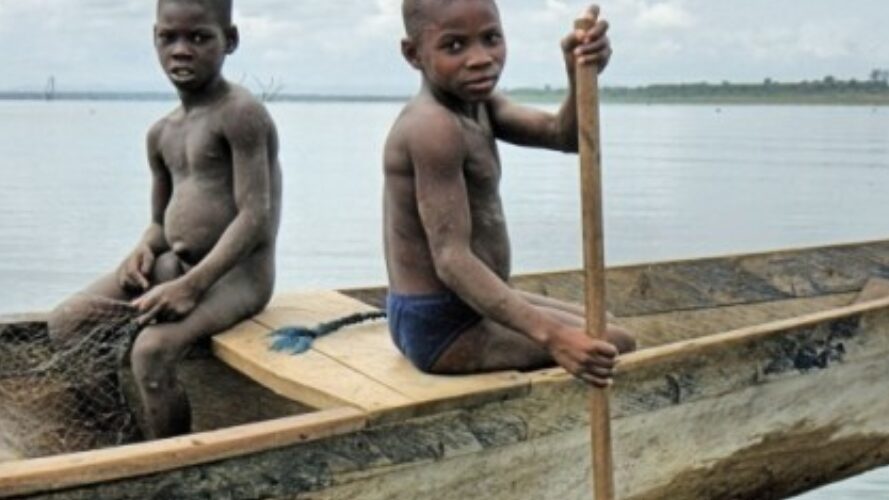IJM Announces Expansion into Ghana to Help End Child Slavery on World's Largest Reservoir
Slavery
Leaders from International Justice Mission have deployed to the West African nation of Ghana to open a new field office—joining with the Ghanaian government and other partners to rescue children from slavery in the fishing industry. IJM will collaborate with the anti-human trafficking police to arrest slave owners and free children being forced to work on Lake Volta, the world’s largest man-made reservoir.
A Ghanaian government survey estimates that 50,000 children work in Ghana’s fishing industry, with tens of thousands on Lake Volta during peak season.
An IJM investigation in Ghana in 2013 found that nearly 60 percent of these children working on one area of Lake Volta had likely been sold into slavery. Read why this was the single hardest assignment in this IJM Senior Investigator’s 30-year career.
Children enslaved on Lake Volta work 14-hour days with very little food, clothing or rest. They are regularly beaten and made to do back-breaking labor, including hauling hundreds of pounds of fish and swimming the depths of the lake to untangle nets.
The violence they face is constant, but not uncommon. According to the Global Slavery Index, nearly 30 million people are trapped as slaves around the world today. What’s more, the ILO estimates that one out of every four forced laborers is a child.
Two Things You Need to Know about IJM Ghana:
- Child slavery on Ghana’s Lake Volta is brutal: IJM investigators met children as young as 4 forced to work in brutal conditions. They saw children with “distended stomachs, scars from beatings and physical abuse, skin diseases, hair falling out, and open sores and wounds.” Slave owners work them tirelessly without food and make even the smallest children dive deep to untangle nets, often leading to drowning.
- It doesn’t have to be this way: Ghana already has strong laws against slavery, including the 2005 Human Trafficking Act, which prohibits all forms of trafficking and slavery with strong penalties for traffickers and slave owners. Ghanaian government authorities agreed that consistent enforcement of these laws is a critical missing piece in the fight against child slavery. They told us they’re eager to end impunity for traffickers and slave masters on the lake.
Earlier in 2014, IJM was invited to pursue formal partnership with the government at the highest levels, with buy-in from anti-trafficking authorities and NGO partners already on the ground. These relationships are key for IJM’s partnership-based model, which has already seen success fighting slavery in South and Southeast Asia.
Timeline: See how IJM came to join the fight against child slavery in Ghana